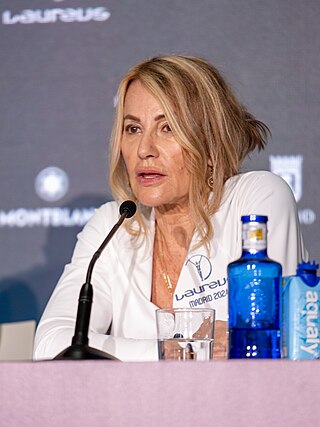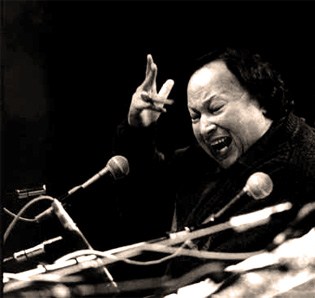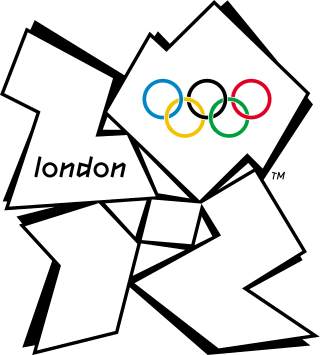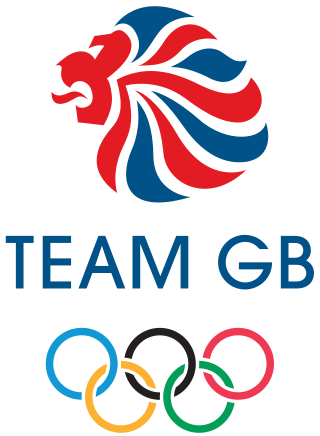Related Research Articles

The modern Olympic Games or Olympics are the leading international sporting events featuring summer and winter sports competitions in which thousands of athletes from around the world participate in a variety of competitions. The Olympic Games are considered the world's foremost sports competition with more than 200 teams, representing sovereign states and territories, participating. By default, the Games generally substitute for any world championships during the year in which they take place. The Olympic Games are held every four years. Since 1994, they have alternated between the Summer and Winter Olympics every two years during the four-year Olympiad.

The Summer Olympic Games, also known as the Games of the Olympiad, is a major international multi-sport event normally held once every four years. The inaugural Games took place in 1896 in Athens, Greece, and the most recent Games are being held in 2024 in Paris, France. This was the first international multi-sport event of its kind, organized by the International Olympic Committee (IOC) founded by Pierre de Coubertin. The tradition of awarding medals began in 1904; in each Olympic event, gold medals are awarded for first place, silver medals for second place, and bronze medals for third place. The Winter Olympic Games were created out of the success of the Summer Olympic Games, which are regarded as the largest and most prestigious multi-sport international event in the world.

The 1976 Summer Olympics, officially known as the Games of the XXI Olympiad and officially branded as Montreal 1976, were an international multi-sport event held from July 17 to August 1, 1976, in Montreal, Quebec, Canada. Montreal was awarded the rights to the 1976 Games at the 69th IOC Session in Amsterdam on May 12, 1970, over the bids of Moscow and Los Angeles. It was the first and, so far, only Summer Olympic Games to be held in Canada. Toronto hosted the 1976 Summer Paralympics the same year as the Montreal Olympics, which still remains the only Summer Paralympics to be held in Canada. Calgary and Vancouver later hosted the Winter Olympic Games in 1988 and 2010, respectively.

Nadia Elena Comăneci Conner is a Romanian retired gymnast. She is a five-time Olympic gold medalist, all in individual events. In 1976, at the age of 14, Comăneci was the first gymnast to be awarded a perfect score of 10.0 at the Olympic Games. At the same Games, she received six more perfect 10s for events en route to winning three gold medals. At the 1980 Summer Olympics in Moscow, she won two more gold medals and achieved two more perfect 10s. During her career, she won nine Olympic medals and four World Artistic Gymnastics Championship medals.

The 2008 Summer Olympics, officially the Games of the XXIX Olympiad and officially branded as Beijing 2008, were an international multisport event held from 8 to 24 August 2008, in Beijing, China. A total of 10,942 athletes from 204 National Olympic Committees (NOCs) competed in 28 sports and 302 events, one event more than those scheduled for the 2004 Summer Olympics. This was the first time China had hosted the Olympic Games, and the third time the Summer Olympic Games had been held in East Asia, following the 1964 Olympics in Tokyo, Japan, and the 1988 Olympics in Seoul, South Korea. These were also the second Summer Olympic Games to be held in a communist state, the first being the 1980 Summer Olympics in the Soviet Union.

Ustad Nusrat Fateh Ali Khan was a Pakistani singer, songwriter, and music director. He was primarily a singer of qawwali, a form of Sufi devotional music. Often called the "Shahenshah-e-Qawwali", he is considered by The New York Times to be the greatest Qawwali singer of all time. He was described as the fourth greatest singer of all time by LA Weekly in 2016. He was known for his vocal abilities and could perform at a high level of intensity for several hours. Khan is widely credited with introducing Qawwali music to international audiences. He was also a master of Hindustani classical music.

The World Athletics Championships are a biennial athletics competition organized by World Athletics. Alongside the Olympic Games, they represent the highest level championships of senior international outdoor athletics competition for track and field athletics globally, including marathon running and race walking. Separate World Championships are held by World Athletics for certain other outdoor events, including cross-country running and half-marathon, as well as indoor and age-group championships.

Theresa Ione Sanderson is a British former javelin thrower. She appeared in every Summer Olympics from 1976 to 1996, winning the gold medal in the javelin throw at the 1984 Olympics. She was the second track and field athlete to compete at six Olympics, and the first Black British woman to win an Olympic gold medal.

The 2012 Summer Olympics, officially the Games of the XXX Olympiad and also known as London 2012, were an international multi-sport event held from 27 July to 12 August 2012 in London, England, United Kingdom. The first event, the group stage in women's football, began on 25 July at the Millennium Stadium in Cardiff, Wales, followed by the opening ceremony on 27 July. There were 10,518 athletes from 206 National Olympic Committees (NOCs) who participated in the 2012 Olympics.

The Australia women's national basketball team, nicknamed the Opals after the brightly coloured gemstone common to the country, represents Australia in international basketball. From 1994 onwards, the Opals have been consistently competitive and successful having won nine medals at official FIBA international tournaments, highlighted by a gold medal winning performance at the 2006 World Championship in Brazil. At the now-defunct regional Oceania Championship for Women, the Opals won 15 titles. In 2017, FIBA combined its Oceanian and Asian zones for official senior competitions; following this change, the Opals compete in the FIBA Women's Asia Cup.

Tunisia first participated at the Olympic Games in 1960, and has sent athletes to compete in every Summer Olympic Games except when they participated in the American-led boycott of the 1980 Summer Olympics and has never participated in the Winter Olympic Games.

The Olympic Games ceremonies of the ancient Olympic Games were an integral part of the games; modern Olympic Games have opening, closing, and medal ceremonies. Some of the elements of the modern ceremonies date back to the ancient games from which the modern Olympics draw their ancestry. An example of this is the prominence of Greece in both the opening and closing ceremonies. During the 2004 Summer Olympics, the medal winners received a crown of olive branches, which was a direct reference to the ancient games, in which the victor's prize was an olive wreath. The various elements of ceremonies are mandated by the Olympic Charter, and cannot be changed by the host nation. Host nations are required to seek the approval of the International Olympic Committee (IOC) for ceremony elements, including the artistic portions of the opening and closing ceremonies.

Canada, represented by the Canadian Olympic Committee (COC), competed at the 2012 Summer Olympics in London, United Kingdom, from 27 July to 12 August 2012. Canadian athletes have competed in every Summer Olympic Games since 1900, except the 1980 Summer Olympics in Moscow because of the country's support for the United States-led boycott. Canada sent a total of 281 athletes to the Games to compete in 24 sports. With the initiation of its "Own the Podium" programme, the COC set a goal of finishing in the top 12 for total medals; but the nation came up short of this goal, finishing 13th in the medal standings. Canada matched its total medal count from Beijing 2008, finishing the event with 18 medals: two gold, six silver and 10 bronze.

The Great Britain Olympic football team was the men's football team that represented the United Kingdom at the Summer Olympic Games. The team was organised by the Football Association as the men's footballing representative of the British Olympic Association. The team only competed in the Olympic Games. In other international football tournaments, the Home Nations of the United Kingdom are represented by their own national teams, a situation which pre-dated the establishment of a GB team.

Trinidad and Tobago competed at the 2012 Summer Olympics in London, United Kingdom from 27 July to 12 August 2012. This was Trinidad and Tobago's most successful Summer Olympics. It was the nation's largest ever delegation sent to the Olympics, with a total of 30 athletes, 21 men and 9 women, in 6 sports. Trinidad and Tobago's participation in these games marked its sixteenth Olympic appearance as an independent nation, although it had previously competed in four other games as a British colony, and as part of the West Indies Federation. The nation was awarded four Olympic medals based on the efforts by the athletes who competed in the track and field. Javelin thrower Keshorn Walcott became the first Trinidadian athlete to win an Olympic gold medal since the 1976 Summer Olympics in Montreal, where Hasely Crawford won for the sprint event. Marc Burns, a four-time Olympic athlete and a relay sprinter who led his team by winning the silver medal in Beijing, was the nation's flag bearer at the opening ceremony.

The 2012 Summer Olympics, officially known as the Games of the XXX Olympiad, was a summer multi-sport event held in London, the capital of the United Kingdom, from 27 July to 12 August. A total of 10,768 athletes from 204 nations participated in 302 events in 26 sports across 39 different disciplines.
At the 2012 Summer Olympics Parade of Nations of the 2012 London Olympics, athletes and officials from each participating country paraded into the Olympic Stadium preceded by their national flag to the sound of iconic British modern music. Each flag bearer was chosen by each nation's National Olympic Committee or by the delegation of athletes.
Ziadi is a surname. Notable people with the surname include:
References
- ↑ "Fateh Ziadi". London 2012. The London Organising Committee of the Olympic Games and Paralympic Games Limited. Archived from the original on 13 September 2012. Retrieved 13 September 2012.